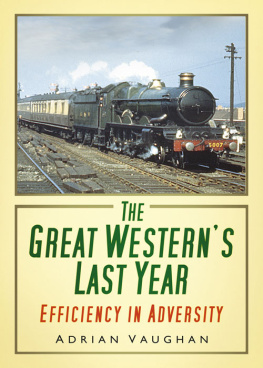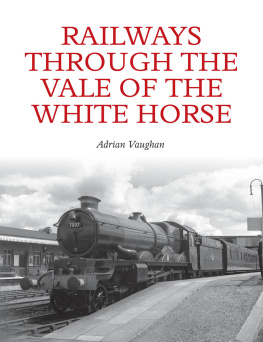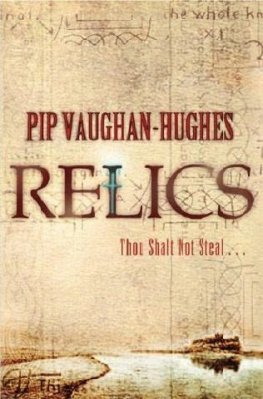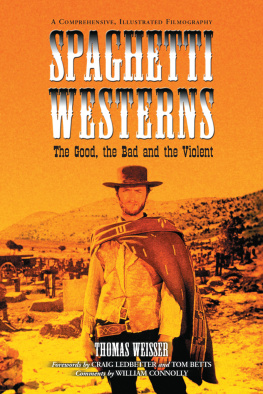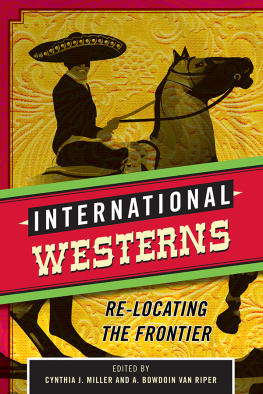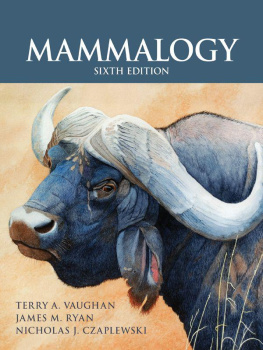Adrian Vaughan - The Great Westerns Last Year
Here you can read online Adrian Vaughan - The Great Westerns Last Year full text of the book (entire story) in english for free. Download pdf and epub, get meaning, cover and reviews about this ebook. year: 2013, publisher: The History Press, genre: Non-fiction. Description of the work, (preface) as well as reviews are available. Best literature library LitArk.com created for fans of good reading and offers a wide selection of genres:
Romance novel
Science fiction
Adventure
Detective
Science
History
Home and family
Prose
Art
Politics
Computer
Non-fiction
Religion
Business
Children
Humor
Choose a favorite category and find really read worthwhile books. Enjoy immersion in the world of imagination, feel the emotions of the characters or learn something new for yourself, make an fascinating discovery.
- Book:The Great Westerns Last Year
- Author:
- Publisher:The History Press
- Genre:
- Year:2013
- Rating:5 / 5
- Favourites:Add to favourites
- Your mark:
- 100
- 1
- 2
- 3
- 4
- 5
The Great Westerns Last Year: summary, description and annotation
We offer to read an annotation, description, summary or preface (depends on what the author of the book "The Great Westerns Last Year" wrote himself). If you haven't found the necessary information about the book — write in the comments, we will try to find it.
The Great Westerns Last Year — read online for free the complete book (whole text) full work
Below is the text of the book, divided by pages. System saving the place of the last page read, allows you to conveniently read the book "The Great Westerns Last Year" online for free, without having to search again every time where you left off. Put a bookmark, and you can go to the page where you finished reading at any time.
Font size:
Interval:
Bookmark:

Kind permission to scan images in the Great Western Staff Magazine was granted by British Rail (Residuary) Ltd, for which I am very grateful. The Trustees of Pendon Museum of the Vale of the White Horse very kindly sent me the full set of 1947 Great Western Railway Magazines, enabling the best possible results of 1947 paper and newsprint images. The use of these images was vital to the authenticity and relevance of the books illustrations. I must acknowledge the kind assistance I have received from some friends: Allan Pym, still a mechanical signalman on Network Rail, who helped me with diagrams of track layouts; Mike Christensen OBE for his help with financial matters on the GWR; Mr Michael Page, ex-Western Region Cardiff Divisional Signal & Telegraph Engineer, for his information regarding his father, F.H.D. Page, Chief Signal & Telegraph Engineer of the GWR; David Collins, last Chief Signal & Telegraph Engineer of Western Region for his replies to my questions. I must also gratefully acknowledge the help I received from Mr Chris Turner of Didcot and from Mr Steve Cooper, a Trustee of the Great Western Society, who took the photograph of the 1942-1947 GWR coat of arms used on the front cover. And finally, I must acknowledge my debt to my editor, Christine McMorris, for her care in helping me prepare this book.
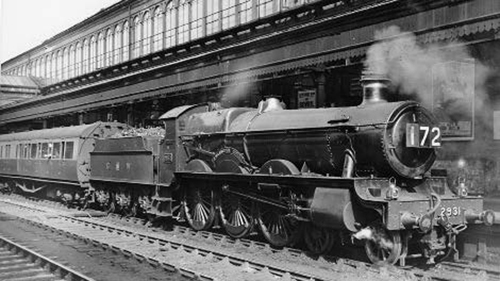
No 2931 Arlington Court at Platform 2 Exeter St Davids on 13 September 1947. (R.C. Riley, Transport Treasury. Ref: RCR 1473)
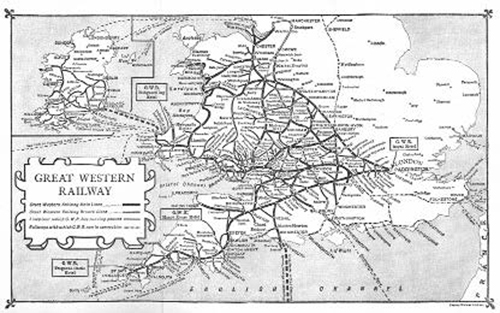
The Bill for the Act of Nationalisation of the British railway system passed its second reading on 18 December 1946. There was the final reading to come but the Labour government had an overwhelming majority of seats in parliament, nationalisation of transport having been the policy of the Labour Party since 1900, and that policy forming part of the election manifesto of 1945 so overwhelmingly voted for by the electors nationalisation was a foregone conclusion. The headline on the first page of the Great Western Railway Magazine for January 1947 was:
All four companies opposed the Bill, and as it also proposed the nationalisation of road freight and passenger haulage, the Road Haulage Association became an unlikely ally of the railways.
Some of the points of objection noted in the Statement were:
i. The Bill provides for the nationalization of transport with no assurance that a practical scheme will be evolved by the (British Transport) Commission which will provide a more adequate, efficient and co-ordinated service than can otherwise be given and which will meet the needs of industry and the travelling public and be acceptable to them.
ii. The Bill makes no provision for the co-ordination of transport. The scheme submitted to the Government by the railways and road hauliers for the co-ordination of freight traffic throughout the country has not received the attention it deserves. It ensures for traders to use any form of transport, including their own. It avoids the dangers and abuses of monopoly and it safeguards the nations transport from the dangers of political pressure.
iii. The Commission are to be subject to general direction by the Minister. This means political interference when political expediency demands it. The Commission are subject to direction by the Minister on nearly every matter. They are not to have independence or freedom.
v. The Commission will not have to prove annually before a Statutory Tribunal as the Railways have had to do since 1921 that their management is economical and efficient.
ix. The financial terms for the acquisition of the Railways put forward in the Bill are unjust and would cause widespread hardship to the many people who depend for their livelihood on the income from railway stocks. In 1945 42 million was paid in interest and dividends. Even between the years 1928 to 1938 which included many years of acute depression, the average annual amount paid in interest and dividends was 35 million. Compare these figures with the 23 million which is the annual amount payable if the stock to be issued by the government in exchange for railway stock carries 2.5% interest.
The Statement was brought to a proud and defiant conclusion as follows:
When presenting the Transport Bill to the House of Commons on 16 December 1946, the Minister of Transport rejected the request for a public inquiry and after three days debate the Bill was approved and committed to a Standing Committee. Although the Minister of Transport paid tribute to the magnificent work done by the railways during the war, the Chancellor of the Exchequer having stated that he would devote himself to the financial side of the measure went out of his way to make an unwarranted attack upon the railways, which he described as a disgrace to the country and a poor bag of assets. Railwaymen throughout the country cannot but resent these disparaging remarks. Prior to the war the British railways compared favourably with those of any country in the world. It was the efficiency of their pre-war organizations and the high standard at which their lines and rolling stock had been maintained despite long periods of trade depression, that enabled the railways to meet the heavy demands of war.
It is no fault of the railway that their permanent way and their locomotive stock, which, prior to the war, were the finest in the world, are now suffering from the effects of war strain. To make good the wartime depreciation of their assets the railways have set aside 148 million which represent the cost of making good the difference in the amount of maintenance work carried out during the war compared with a corresponding pre-war period, and that is without any allowance for abnormal wear and tear for which they are claiming a further 40 million from the Government.
But while the necessary financial provision has been made by the railway companies to restore the railways to their pre-war standard, it has not been possible to obtain sufficient materials and labour and if there is any suggestion that more work should have been done, the responsibility for it not having been done rests with the government.
It may be assumed that the Government will make every effort to get the Bill passed during the present session of Parliament and, if eventually the railways are nationalized, there will be many members of staff who will feel sad that they will no longer be associated with a Company of whose achievements and traditions they may feel proud.
The Financial Times editorial of 3 September 1946 was in favour of nationalisation:
Open competition is too costly to contemplate and it is likely to lead to the breakdown of public services, and no effective middle course appears possible without subsidies. The complete co-ordination of transport by means of a scheme of unification is the only way to get the best possible service at the lowest economic cost.
There had not been open competition between the companies since the 1921 Transport Act. From 1930 they were moving towards co-ordination and co-operation. Income from freight traffic was pooled, two companies with stations side by side, as at Oxford, would have one Station Master between them. Locomotive shed facilities would be shared should the need arise. The GWR had joint ownership of local bus companies: GWR and Southern or LMS and the original company; Thames Valley; Western National; Western Welsh. The companies were developing a co-operation with road collection and delivery services. These policies were still being acted upon and extended in 1947.
Next pageFont size:
Interval:
Bookmark:
Similar books «The Great Westerns Last Year»
Look at similar books to The Great Westerns Last Year. We have selected literature similar in name and meaning in the hope of providing readers with more options to find new, interesting, not yet read works.
Discussion, reviews of the book The Great Westerns Last Year and just readers' own opinions. Leave your comments, write what you think about the work, its meaning or the main characters. Specify what exactly you liked and what you didn't like, and why you think so.

